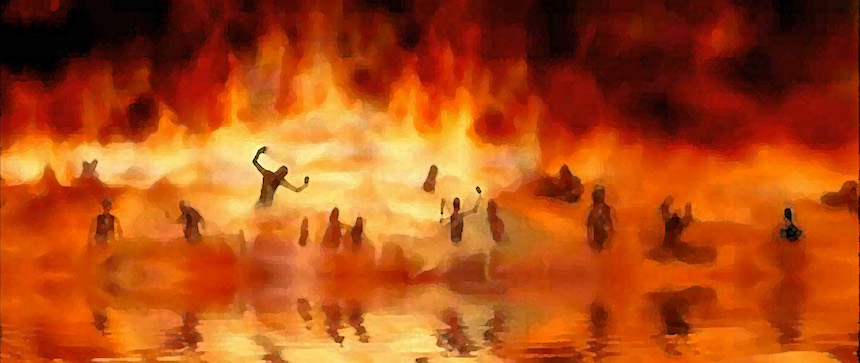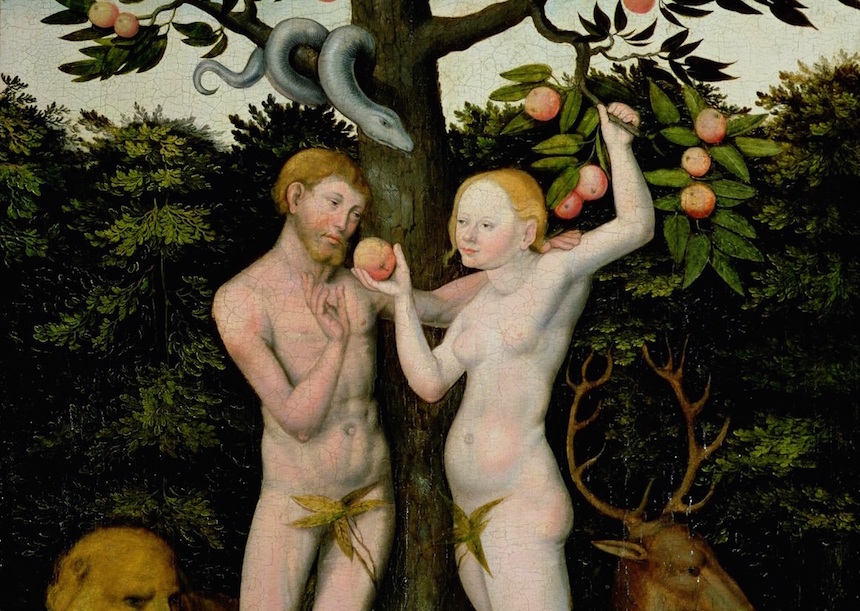An Introduction to Natural Law
Have you ever been confused by the term “Natural Law”? Does it simply mean that if something “natural” then it’s okay? Karlo Broussard explains…
"We are travellers…not yet in our native land" – St. Augustine
Have you ever been confused by the term “Natural Law”? Does it simply mean that if something “natural” then it’s okay? Karlo Broussard explains…


Today I’m going to be looking at a longer chapters of the Qur’an: Surah 36.
Surah 36 – “Ya Sin” (Ya-Sin)
This chapter covers the usual material. Muhammad’s commission by God is, of course, reaffirmed. He is told that some people to whom he speaks will not listen to him, but his job is to warn them anyway.
This chapter describes a pair of missionaries arriving at a city. It is not clear if this is an historic story or not. Either way, the message of the missionaries is rejected, but then a man comes from the city and pleads with his fellow inhabitants to listen to these men. He draws particular attention to the fact that they do not ask for money. For his own part, the man testifies that Allah made him, he will return to Him and thus Allah is worthy of worship and the intercession of the city’s false gods is worthless. The text abruptly switches to speaking about Paradise so my footnotes suggest that this means that the man was killed for his faith. While I can understand this explanation, the Qur’an seems to me to jump randomly from topic-to-topic without warning on a regular basis.
Allah then identifies various “signs” to be submitted for consideration:
I’m not 100% sure, but it seems that these signs are all meant to point to new life and Allah’s saving help.
 Doug Beaumont‘s interview on the Coming Home Network is now up on YouTube. I’ve shared quite a few of Doug’s article’s here before. I’ll also be writing up a review of his book Evangelical Exodus sometime in January.
Doug Beaumont‘s interview on the Coming Home Network is now up on YouTube. I’ve shared quite a few of Doug’s article’s here before. I’ll also be writing up a review of his book Evangelical Exodus sometime in January.
In the interview he speaks about the formation he received at Southern Evangelical Seminary, the relationship between philosophy and apologetics, as well as his wrestlings with “the canon question”:


Today I’m going to be looking at two chapters of the Qur’an, one long (#7) and one reasonably short (#72).
Surah 7 – “The heights” (Al-Araf)
Mankind is reminded to follow Allah and also reminded of the cities which He destroyed to punish unbelieving people. The scales of judgement which weigh good deeds are also recalled.
The fall of Satan is described, in an almost identical pattern to Surah 38 (“The letter sad”). The narrative continues, however, describing the Fall of Adam and Eve. Allah told them “do not approach this tree, lest you be among the wrongdoers”. The nature of the tree or the consequences of eating from it were not really explained. Rather than saying that they will be like gods (as in the Genesis narrative), Satan promised that if they eat the fruit they will “become angels or become of the immortal”. Once they have eaten, they recognize their nakedness and sew together leaves as clothes. God arrives and chastises them. We don’t see “the blame game” which we see in Genesis, where Adam blames Eve (and ultimately God) and Eve blames the serpent.

This last weekend was the Young Adult Christmas Gala in San Diego. My friend and former roommate, Nathan, received an award at the Gala for his service to the young adults of the Diocese. In his speech he read an extended quotation from Dietrich Bonhoeffer, the German Lutheran Pastor who was killed by the Nazi’s in the waning days of World War II.
I wanted to share a portion of what Nathan shared because I think these words of Dietrich are prophetic for our own times, when many try to construct a cross-less Christianity and presume upon the grace of God and use it as an excuse for sin.
“Cheap grace is the deadly enemy of our Church. We are fighting today for costly grace…
Cheap grace means the justification of sin without the justification of the sinner. Grace alone does everything they say, and so everything can remain as it was before… Well, then, let the Christian live like the rest of the world, let him model himself on the world’s standards in every sphere of life, and not presumptuously aspire to live a different life under grace from his old life under sin….
Cheap grace is the grace we bestow on ourselves. Cheap grace is the preaching of forgiveness without requiring repentance, baptism without church discipline, Communion without confession… Cheap grace is grace without discipleship, grace without the cross, grace without Jesus Christ, living and incarnate.
Costly grace is the treasure hidden in the field; for the sake of it a man will gladly go and self all that he has. It is the pearl of great price to buy which the merchant will sell all his goods. It is the kingly rule of Christ, for whose sake a man will pluck out the eye which causes him to stumble, it is the call of Jesus Christ at which the disciple leaves his nets and follows him.
Costly grace is the gospel which must be sought again and again and again, the gift which must be asked for, the door at which a man must knock. Such grace is costly because it calls us to follow, and it is grace because it calls us to follow Jesus Christ. It is costly because it costs a man his life, and it is grace because it gives a man the only true life. It is costly because it condemns sin, and grace because it justifies the sinner. Above all, it is costly because it cost God the life of his Son: “ye were bought at a price,” and what has cost God much cannot be cheap for us. Above all, it is grace because God did not reckon his Son too dear a price to pay for our life, but delivered him up for us. Costly grace is the Incarnation of God”
– Dietrich Bonhoeffer, The Cost Of Discipleship


My course through the Qur’an continues today with chapters 86, 54 and 38. I’m tackling fewer chapters in this post because Surah 38 is quite long and I have quite a lot to say about it…
Surah 86 – “The morning star” (At-Tariq)
This chapter begins by reminding man from what he was made. In the same way that Allah created them from nothing, He is able to give them life again on Judgement Day. The authority of the Qur’an is reasserted, as is God’s control over the events of life.
Questions
Q1. What does aya 4 mean when it says “There is no soul but that it has over it as a protector”? Is it saying that every soul has a protector? If so, is this Allah or an angel?
Q2. Does semen really emerge “from between the backbone and the ribs”? sperm production is far lower than that.
 A few weeks ago I wrote a post about Patricia Sandoval and I compared her to Abby Johnson, but it occurred to me afterwards that, although her story is quite well known, not everyone may be familiar with it. Today I would like to rectify this by sharing her interview of The Journey Home:
A few weeks ago I wrote a post about Patricia Sandoval and I compared her to Abby Johnson, but it occurred to me afterwards that, although her story is quite well known, not everyone may be familiar with it. Today I would like to rectify this by sharing her interview of The Journey Home: